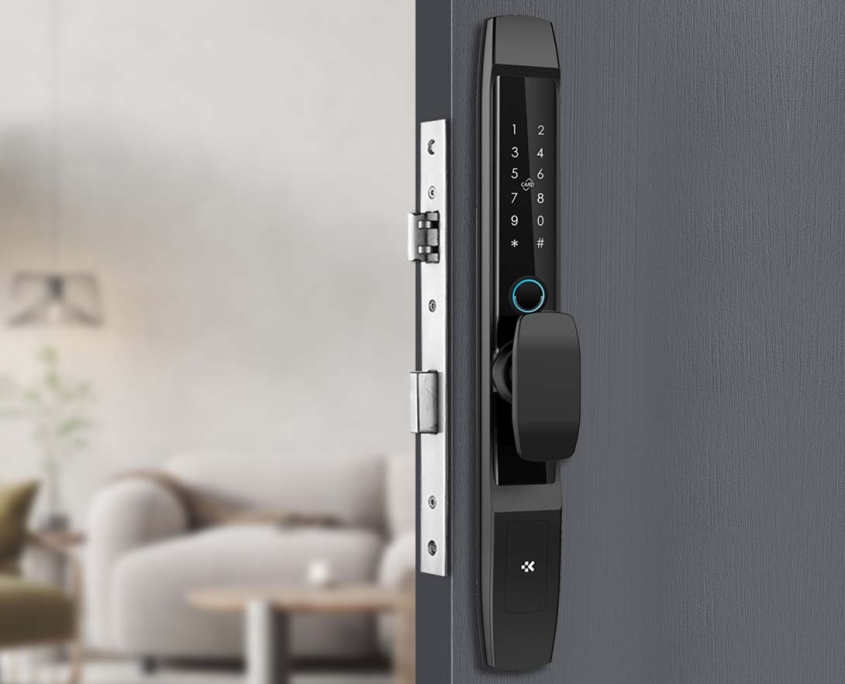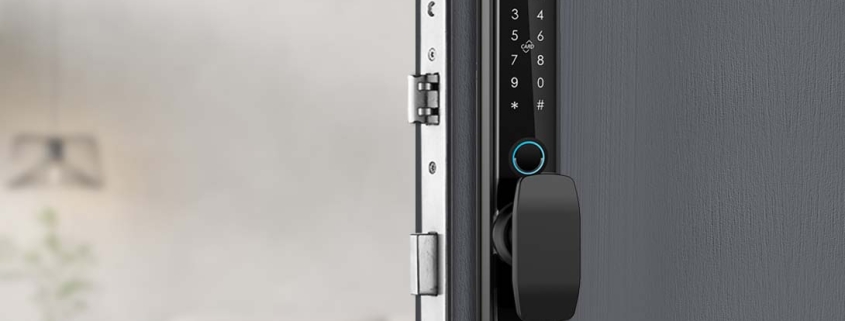Can You Still Use a Key with a Smart Lock?
Smart locks have revolutionized home security, offering keyless entry, remote access, and seamless integration with smart home systems. But one question many Americans ask is: Can you still use a traditional key with a smart lock?
The answer depends on the type of smart lock you choose. Some models retain a keyhole for backup access, while others are completely keyless. In this article, we’ll explore:
- Why some smart locks still have keyholes
- The pros and cons of keyed vs. keyless smart locks
- Which option is best for your home security needs
By the end, you’ll know whether a smart lock with a key backup is right for you—or if you’re ready to go fully keyless.
Why Some Smart Locks Still Have Keyholes
Most smart locks fall into two categories:
- Smart Locks with Key Backup – These allow both electronic (Wi-Fi, Bluetooth, fingerprint, etc.) and traditional key entry.
- Fully Keyless Smart Locks – These rely solely on digital access methods like codes, apps, or biometrics.
Reasons Manufacturers Include Keyholes
1. Backup Access in Case of Power or Tech Failure
Smart locks run on batteries or electricity. If the battery dies or the Wi-Fi goes down, a keyhole ensures you’re not locked out. This is especially important in emergencies.
2. Familiarity & User Trust
Many Americans are hesitant to rely entirely on digital locks. A keyhole provides a psychological safety net, making the transition to smart locks easier.
3. Compliance with Landlord or HOA Rules
Some rental agreements or homeowners’ associations require traditional key access. A hybrid smart lock ensures compliance while adding smart features.
Popular Smart Locks with Keyholes
- Keyplus T8 Smart Door Lock – Supports Fingerprint, password, card, key, and smartphone app unlocking methods.

The Pros and Cons of Smart Locks with Keys
 Advantages
Advantages



 Disadvantages
Disadvantages



Fully Keyless Smart Locks: Are They Reliable?
For those ready to ditch keys entirely, keyless smart locks offer a streamlined experience.
How Keyless Locks Handle Power or Tech Issues
- Long Battery Life – Many last 6-12 months and send low-battery alerts.
- External Power Options – Some allow a 9V battery or USB charging in emergencies.
- Manual Override Options – A few models have hidden touchpad combinations or physical levers.
When Keyless Makes Sense
- Tech-Savvy Households – Everyone uses smartphones and apps.
- Rentals with Key Control Issues – No need to rekey when tenants leave.
- Airbnb or Vacation Homes – Easier to manage guest access remotely.
Which Option Is Best for You?
Choose a Smart Lock With a Key If You…
Want a backup in case of tech failure
Have family members resistant to smart tech
Live in an area with spotty Wi-Fi or power outages
Choose a Keyless Smart Lock If You…
Prefer a completely key-free lifestyle
Trust battery life and smart alerts
Want maximum resistance to lock picking
Final Verdict: Yes, You Can Still Use a Key—But You Might Not Need To
Smart locks with keyholes provide peace of mind for those not ready to fully commit to digital access. However, as battery life improves and smart home tech becomes more reliable, many Americans are opting for fully keyless systems.
The best choice depends on your lifestyle, security needs, and comfort level with technology. Whether you keep a key as a backup or go all-in on keyless convenience, smart locks offer a major upgrade over traditional deadbolts.
Would you choose a smart lock with a keyhole, or are you ready to go keyless? Let us know in the comments!
Recommended Next Read: “Smart Lock Buying Guide: 5 Must-Know Features Before You Upgrade“









